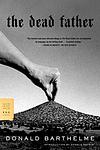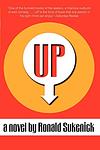The Greatest "Contemporary, Absurdist, Satire" Books of All Time
Click to learn how this list is calculated.
This list represents a comprehensive and trusted collection of the greatest books. Developed through a specialized algorithm, it brings together 305 'best of' book lists to form a definitive guide to the world's most acclaimed books. For those interested in how these books are chosen, additional details can be found on the rankings page.
Genres
Contemporary books are a genre that focuses on stories set in the present day, often exploring current social, cultural, and political issues. These books are typically written in a modern style and often feature relatable characters dealing with real-life situations. Contemporary books can cover a wide range of topics, from romance and family drama to coming-of-age stories and thrillers. The genre is constantly evolving to reflect the changing world we live in, making it a popular choice for readers who want to stay up-to-date with the latest trends and issues.
Absurdist literature is a genre that explores the irrationality and meaninglessness of human existence. It often features characters who are trapped in absurd situations and struggle to find purpose or understanding in a chaotic world. Absurdist books challenge traditional notions of plot, character development, and narrative structure, and often use humor and satire to critique societal norms and conventions. This genre is characterized by its philosophical and existential themes, and its rejection of traditional literary conventions.
Satire is a genre of literature that uses humor, irony, and exaggeration to criticize and ridicule human vices, follies, and shortcomings. It is a form of social commentary that aims to expose the flaws and absurdities of society, politics, and culture. Satirical books often employ sarcasm, wit, and parody to challenge the status quo and provoke thought and reflection in readers. Satire can be both entertaining and thought-provoking, and it has been used throughout history as a powerful tool for social and political critique.
Countries
Date Range
Reading Statistics
Click the button below to see how many of these books you've read!
Download
If you're interested in downloading this list as a CSV file for use in a spreadsheet application, you can easily do so by clicking the button below. Please note that to ensure a manageable file size and faster download, the CSV will include details for only the first 500 books.
Download-
1. Concrete by Thomas Bernhard
The book is a darkly introspective narrative that delves into the mind of a reclusive, obsessive intellectual who is struggling to complete his scholarly work on the composer Mendelssohn. As he grapples with his own ailments and the perceived mediocrity of his surroundings, the protagonist's stream-of-consciousness monologue reveals his deep-seated anxieties, self-loathing, and profound isolation. The narrative is a relentless examination of the protagonist's psyche, showcasing his critical view of society and his own personal relationships, which are fraught with tension and dysfunction. Through this, the novel explores themes of artistic creation, intellectual elitism, and the suffocating nature of expectations and familial obligations.
The 1733rd Greatest Book of All Time -
2. Woodcutters by Thomas Bernhard
Woodcutters is a darkly humorous critique of Vienna's artistic elite. The story takes place over the course of a single evening, as the narrator attends a dinner party in honor of a recently successful actor. As the evening progresses, he reflects on the pretentiousness and hypocrisy of the guests, the mediocrity of their artistic achievements, and the tragic suicide of his former lover. The novel is a scathing indictment of the vanity and self-delusion of the artistic community.
The 1741st Greatest Book of All Time -
3. The Dead Father by Donald Barthelme
The book is a surreal, postmodern narrative following a group of characters as they drag the physical manifestation of their dead father across a variety of landscapes. The characters grapple with their relationships to the father figure, exploring themes of authority, control, and the nature of storytelling itself. The novel is known for its experimental style, blending a range of literary techniques and genres to create a unique, fragmented narrative.
The 2028th Greatest Book of All Time -
4. The Clay Machine-gun by Victor Pelevin
"The Clay Machine-gun" is a surreal and complex novel that explores the nature of reality and illusion. The story is set in post-Soviet Russia and follows a protagonist who has multiple identities, including a poet in 19th-century Russia, a 20th-century psychiatric patient, and a 21st-century advertising executive. The narrative moves between these identities and realities, blurring the lines between them and creating a layered and philosophical exploration of Russian society, identity, and the human psyche.
The 2266th Greatest Book of All Time -
5. The Moscoviad by Yuri Andrukhovych
"The Moscoviad" is a satirical novel that follows the journey of a group of Ukrainian intellectuals as they embark on a chaotic and absurd trip to Moscow. Through a series of hilarious and bizarre encounters, the author explores the complex relationship between Ukraine and Russia, while also delving into the themes of identity, history, and cultural clashes. With its sharp wit and biting commentary, the novel offers a unique perspective on the post-Soviet era and the tensions between the two neighboring countries.
The 5149th Greatest Book of All Time -
6. Up by Ronald Sukenick
"Up" is a postmodern novel that explores the life of an unnamed protagonist who is a writer. The narrative structure of the book is unique, as it breaks traditional storytelling norms and uses a fragmented and nonlinear approach to depict various events and experiences in the protagonist's life. The book delves into themes of identity, reality, and the nature of storytelling, offering a metafictional commentary on the process of writing and the relationship between the author, the narrative, and the reader.
The 5721st Greatest Book of All Time -
7. Homesick for Another World by Ottessa Moshfegh
"Homesick for Another World" is a collection of short stories that explore the lives of various flawed and eccentric characters, each struggling with their own personal demons and insecurities. The narratives delve into the dark, often uncomfortable aspects of humanity, with themes of loneliness, self-loathing, and the desperate search for connection and meaning. The stories are set in a variety of locations, from small towns to big cities, and each presents a unique perspective on the human condition.
The 9613th Greatest Book of All Time
Reading Statistics
Click the button below to see how many of these books you've read!
Download
If you're interested in downloading this list as a CSV file for use in a spreadsheet application, you can easily do so by clicking the button below. Please note that to ensure a manageable file size and faster download, the CSV will include details for only the first 500 books.
Download





